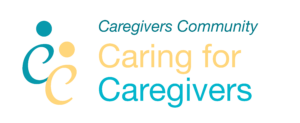** Edited by
Baha and Margaret Habashy
The Challenge
How do you overcome cultural barriers in caregiving?
Understanding diverse cultural backgrounds and practices is crucial for caregivers as they provide care. From dietary preferences to religious practices, cultural nuances shape how caregivers approach their responsibilities. Navigating these dimensions of care emphasizes the significance of cultural competence, ensuring that individuals receive care that is respectful and tailored to their unique cultural needs.
Meet Mei
Mei is a devoted Cantonese speaking daughter facing a heart-wrenching challenge in an English-speaking world. Her father, battling cancer, leans on her for care, but there’s a catch—he doesn’t speak English. Mei finds herself navigating cultural differences while tending to her father’s needs.
Every day is a journey for Mei. From deciphering medical jargon to ensuring her father’s dietary needs are met, she faces hurdles that seem insurmountable. Yet, her love for her father fuels her determination.
Communication becomes their biggest barrier. Mei struggles to convey her father’s symptoms and concerns to the medical team accurately. It’s like trying to piece together a puzzle with missing pieces.
Amidst the chaos, Mei finds solace in small moments. A smile from her father, a shared meal reminiscent of happier times—it’s these moments that keep her going.
But Mei knows she can’t do it alone. She reaches out to community resources, seeking support and guidance. Slowly, she begins to bridge the gap between her father’s cultural background and the English-speaking environment they find themselves in.
Through perseverance and love, Mei learns that cultural differences may pose challenges, but they also enrich their journey together, creating a bond that transcends language barriers.
BIBLICAL INSIGHTS
Proverbs 3:5-6 “Trust in the Lord with all your heart and lean not on your own understanding; in all your ways submit to him, and he will make your paths straight.”
Mei’s journey caring for her father may feel overwhelming, but this verse reminds her to trust in God’s guidance. Even when faced with language barriers and cultural differences, relying on God’s wisdom and submitting to His will can help her navigate the challenges ahead.
Romans 12:2 “Do not conform to the pattern of this world, but be transformed by the renewing of your mind. Then you will be able to test and approve what God’s will is—his good, pleasing and perfect will.”
Mei may encounter cultural expectations and norms that clash with her own beliefs and practices. This verse encourages her to remain steadfast in her faith and not conform to worldly standards. By seeking God’s will and renewing her mind according to His principles, Mei can find clarity and direction in her caregiving journey.
James 1:5 “If any of you lacks wisdom, you should ask God, who gives generously to all without finding fault, and it will be given to you.”
Mei faces numerous decisions and challenges as she cares for her father, often requiring wisdom beyond her own understanding. This verse reminds her to turn to God in prayer, trusting that He will provide the wisdom she needs to make sound judgments and navigate unfamiliar territory.
1 Corinthians 13:7 “It always protects, always trusts, always hopes, always perseveres.”
Mei’s love for her father is evident in her tireless efforts to care for him despite the obstacles they face. This verse from the famous love passage in Corinthians reminds Mei that love perseveres through trials and challenges. No matter the difficulties they encounter, Mei’s love for her father remains steadfast, offering hope and comfort in their journey together.
THOUGHTS AND TIPS
- Utilize Translation Apps: Example: Mei can use translation apps like Google Translate to help bridge language gaps during medical appointments or when discussing treatment options with healthcare professionals.
- Seek Cultural Sensitivity Training: Example: Mei can attend workshops or online courses designed to increase awareness and understanding of cultural differences in caregiving, helping her navigate diverse cultural practices more effectively.
- Engage with Community Support Groups: Example: Mei can join support groups specifically tailored for caregivers from similar cultural backgrounds, providing a safe space to share experiences, seek advice, and find encouragement.
- Utilize Bilingual Medical Professionals: Example: Mei can request to work with healthcare providers who are fluent in both English and her father’s native language, ensuring clear communication and cultural understanding during medical consultations.
- Create Multilingual Medical Documents: Example: Mei can prepare medical documents, such as a list of medications or emergency contact information, in both English and her father’s native language to facilitate communication with healthcare providers.
- Build a Cultural Bridge: Example: Mei can enlist the help of family members or friends who are familiar with her father’s cultural background to serve as interpreters or cultural liaisons during medical appointments or caregiving tasks.
- Educate Healthcare Providers: Example: Mei can educate her father’s healthcare team about his cultural background, beliefs, and preferences, helping them provide more culturally sensitive and personalized care.
- Celebrate Cultural Holidays and Traditions: Example: Mei can celebrate important cultural holidays and traditions with her father, engaging in activities that hold cultural significance and promote a sense of belonging and connection.
- Practice Active Listening: Example: Mei can practice active listening when communicating with her father, paying attention to his verbal and nonverbal cues to better understand his emotions, concerns, and needs.
- Use Visual Aids: Example: Mei can use visual aids, such as picture cards or diagrams, to communicate complex medical information or instructions to her father in a clear and accessible manner.
- Encourage Cultural Exchange: Example: Mei can encourage her father to share stories, memories, and traditions from his cultural background, fostering mutual understanding and strengthening their bond as caregivers and care recipients.
- Stay Open-Minded: Example: Mei can remain open-minded and receptive to learning about her father’s cultural background, recognizing that cultural differences enrich their relationship and caregiving experience.
- Seek Professional Counseling: Example: Mei can seek guidance from a multicultural counsellor or therapist who can provide support and strategies for coping with the challenges of caregiving across cultural boundaries.
- Create a Culturally Inclusive Environment: Example: Mei can create a culturally inclusive environment at home by displaying cultural artifacts, listening to music from her father’s native country, and incorporating elements of his culture into their daily life.
- Practice Patience: Example: Mei can practice patience when communicating with her father, understanding that language barriers and cultural differences may require extra time and effort to overcome.
- Stay Flexible: Example: Mei can remain flexible and adaptable in her caregiving approach, willing to adjust plans and strategies to accommodate her father’s cultural needs and preferences.
- Celebrate Diversity: Example: Mei can embrace diversity and cultural differences as opportunities for growth and learning, recognizing the richness and beauty of their shared experiences as caregivers and care recipients.
At our Community Forum you post your prayer requests, gain spiritual guidance, seek emotional support, and get answers to your caregiving questions. Moderated by qualified Christians, pastors, and healthcare professionals, it is our gift to serve you.
** Note: This blog content was developed with help from ChatGPT 3.5. The story, names and images are for illustration only.






Leave a Reply
Want to join the discussion?Feel free to contribute!